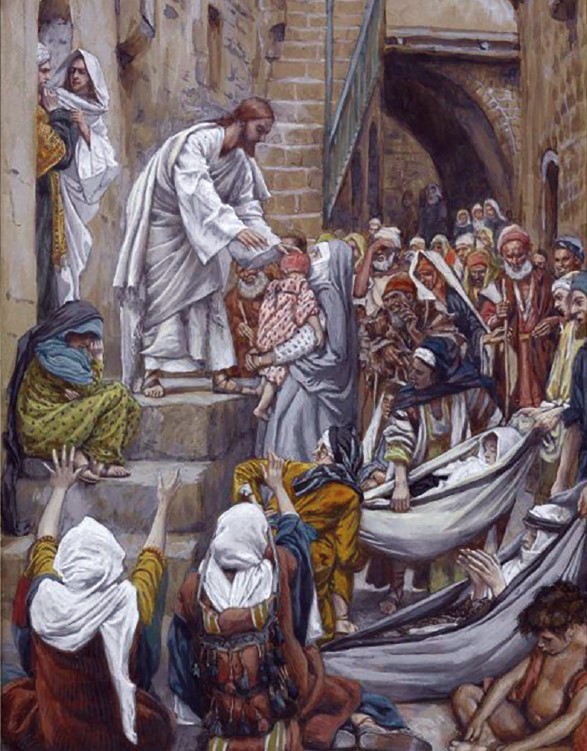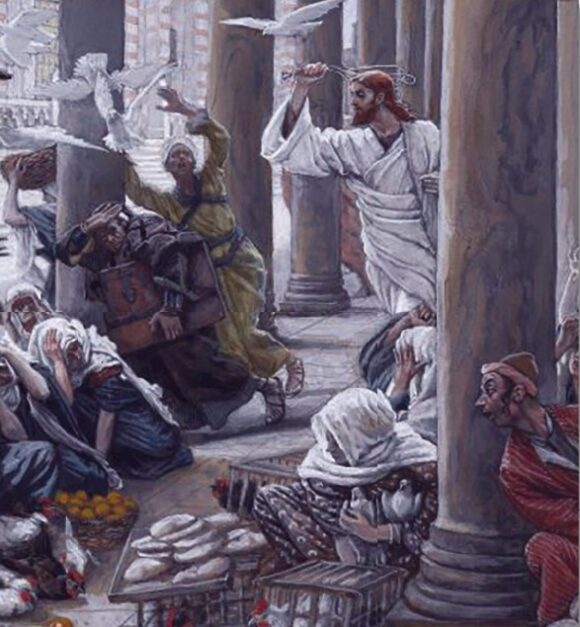JESUS CHRIST LIVED in Israel during the time of the Roman Empire. The supreme council in Israel was the Sanhedrin, and it contained two main political parties which were in opposition to each other—the Sadducees and the Pharisees. Another significant political force in Israel was the Zealots, who advocated rebellion against Rome.
Christadelphians take a keen interest in world events, but they do not engage in politics. In this they follow the example of Jesus Christ, who took no part in the politics of his day. There are politicians of all types who claim to be following the teaching of Christ. But let’s look at some current political movements, and compare them with the teachings of Jesus and the Bible.
Jesus the Liberal
Liberal political thought revolves around the freedom of the individual, emphasizing the fortification and protection of this freedom through laws.
Freedom was crucial to Jesus: ‘You will know the truth, and the truth will set you free’ (John 8:32). He never advocated social or political revolution, instead he focused on true freedom: ‘Truly, truly, I say to you, everyone who commits sin is a slave to sin. The slave does not remain in the house for ever; the son remains for ever. So if the Son sets you free, you will be free indeed’ (vs. 34–36).
On numerous occasions, he challenged the Pharisees’ rigid adherence to their traditions. For example he often healed on the Sabbath day, going against the Pharisees’ interpretation of the Law of Moses. Many people considered this improper.
Jesus respected human freedom by being willing to engage with anyone, whether it was Nicodemus (the Jewish ruler), the Samaritan woman (Jews despised Samaritans), or Mary Magdalene (the woman with a sordid personal background). Furthermore, he scandalized respectable society when he dined in the house of a tax collector.
And as Jesus reclined at table in the house, behold, many tax collectors and sinners came and were reclining with Jesus and his disciples. And when the Pharisees saw this, they said to his disciples, “Why does your teacher eat with tax collectors and sinners? ”But when he heard it, he said, “Those who are well have no need of a physician, but those who are sick. Go and learn what this means, ‘I desire mercy, and not sacrifice.’ For I came not to call the righteous, but sinners (Matthew 9:10–13).
This is echoed by the Apostle Paul, who urged those who were seeking to return to rigid adherence of the Law of Moses, ‘For freedom Christ has set us free; stand firm therefore, and do not submit again to a yoke of slavery’ (Galatians 5:1).
Jesus was concerned with the freedom of the individual—not in a political or social sense, but in the ultimate sense of freedom from the burden of sin and mortality.
Jesus the Conservative
For conservatives, preserving values and traditions is important, and they often advocate nationalism.
Jesus’ teaching was firmly based in the Jewish scriptures (our Old Testament). He would teach in synagogues (Luke 4:16). Furthermore, he always behaved and acted by seeking his Father’s help, as is necessary when embarking on anything. When the rich young man approached him, he referred him to the Ten Commandments, the core of the Law of Moses:
And behold, a man came up to him, saying, “Teacher, what good deed must I do to have eternal life?” And he said to him, “Why do you ask me about what is good? There is only one who is good. If you would enter life, keep the commandments” (Matthew 19:16–17).
He never denied or reinterpreted any prophet, and he never contradicted any law. If it seemed as though he violated a law, it was because he was fulfilling the spirit of the law as defined by God, the law-giver: ‘Do not think that I have come to abolish the Law or the Prophets; I have not come to abolish them but to fulfil them. For truly, I say to you, until heaven and earth pass away, not an iota, not a dot, will pass from the Law until all is accomplished’ (Matthew 5:17–18).
Jesus was clear about preserving the truth of God’s Word. The Bible is a consistent whole from start to finish.
Jesus the Socialist
Socialism in its modern sense is about the ownership of the means of production by the people—as opposed to a privileged elite.
Jesus was a critic of the wealthy elite of his time, as manifested most notably when he drove out the merchants who were profiteering from the Temple:
And Jesus entered the temple and drove out all who sold and bought in the temple, and he overturned the tables of the money- changers and the seats of those who sold pigeons. He said to them, “It is written, ‘My house shall be called a house of prayer,’ but you make it a den of robbers” (Matthew 21:12–13).
He called the Pharisees hypocrites and whitewashed tombs (Matthew 23:27). He criticized those who fasted in order to be admired, and those who loudly recited lengthy prayers in order to impress others with their piety (Matthew 6:1–8).
He loved the poor, as evidenced when he commended the poor widow for her meagre gift (Mark 12:41–44). He himself was a labourer, learning the trade of carpentry from Joseph, and his disciples were also working-class people, mostly fishermen. He considered work important, aligning with his Father, who placed Adam and Eve in the Garden of Eden to cultivate and keep it (Genesis 2:15).
Jesus was a man of the people, who regarded everyone as equal in God’s sight.
Conclusion
In today’s political landscape there are no purely liberal, conservative or socialist parties. Politicians tailor their manifestos towards the priority of being elected. Election campaigns are expensive, modern democracy requires tactical planning, and political compromises are inevitable.
Looking at Jesus, we can say that his teachings encompass elements from every ideology. But his teaching shows the perfect ideal to which all human ideologies aspire. He is human-centered; he respects and values traditions, and his mission is to set us free.
Political parties seek temporal power, while Jesus wants to show people the path of godliness. Jesus doesn’t need to be re-elected; he doesn’t flatter anyone for money or votes. His life and actions have been documented for almost two millennia, and his wisdom is essential for those who seek to live their best life now, with the prospect of eternal life in God’s Kingdom.
Therefore, Jesus would not endorse any of this world’s political options.
Zoltán Mészáros



